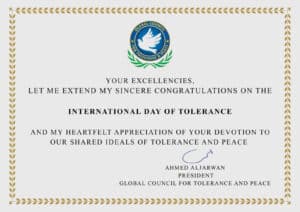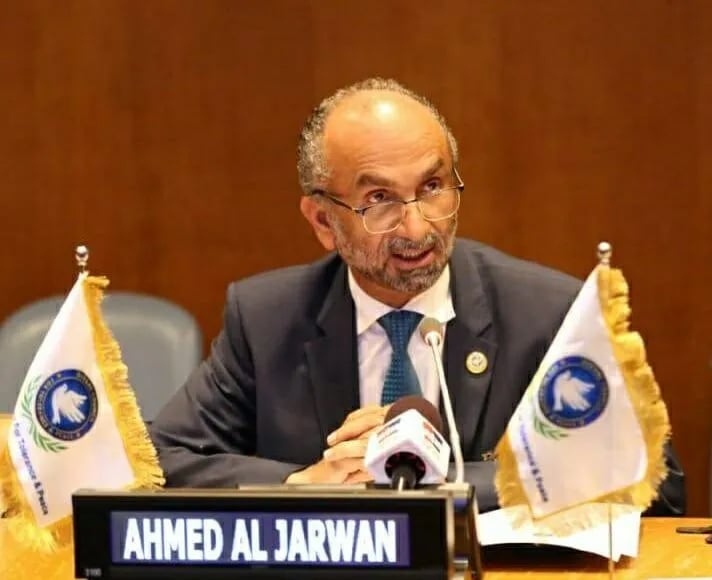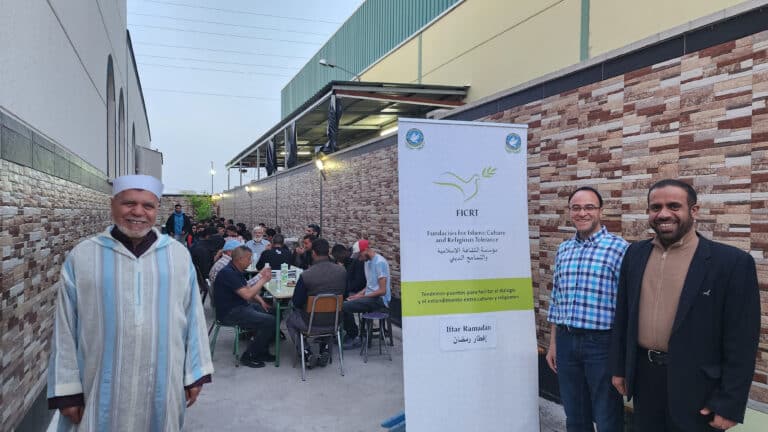Malta – 16 November 2025
Marking the International Day for Tolerance, observed each year on 16 November, H.E. Ahmed bin Mohamed Al Jarwan, President of the Global Council for Tolerance and Peace, stressed that this occasion represents a vital reminder that tolerance is not an optional value for nations and societies, but an urgent necessity to safeguard international peace and security and protect the future of coming generations.
Al Jarwan noted that the world is witnessing rising challenges, including conflicts, polarization, and growing social tensions, which require that tolerance, dialogue, and respect for cultural and religious diversity be placed at the core of any civilisational and developmental vision. He stated:
“Tolerance is the bridge that can spare the world from cycles of hatred and violence. It is the foremost moral foundation for building a safer, fairer, and more sustainable global community.”
The President of the Global Council for Tolerance and Peace also highlighted the Council’s efforts, through its International Parliament, its General Assembly, and various global initiatives, to work alongside national parliaments, international organizations, academic institutions, and civil society to promote laws and policies that strengthen mutual understanding and respect for others.
Al Jarwan concluded by emphasizing that transforming the International Day for Tolerance into a platform for more impactful initiatives in support of peace and coexistence remains a shared responsibility. He affirmed that fostering a culture of tolerance begins with education, media, and community engagement, stressing that investing in tolerance is a direct investment in the stability, prosperity, and future of nations and their people.








